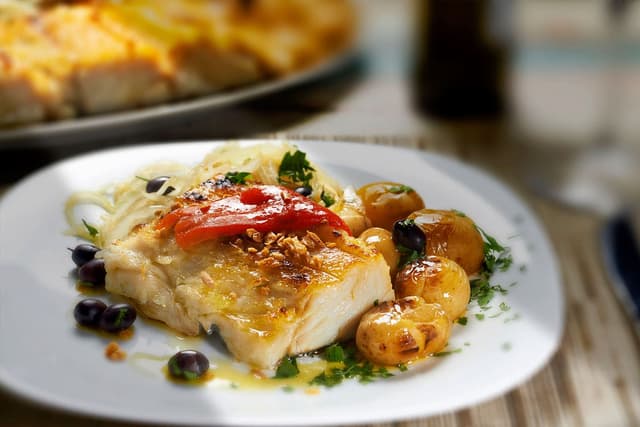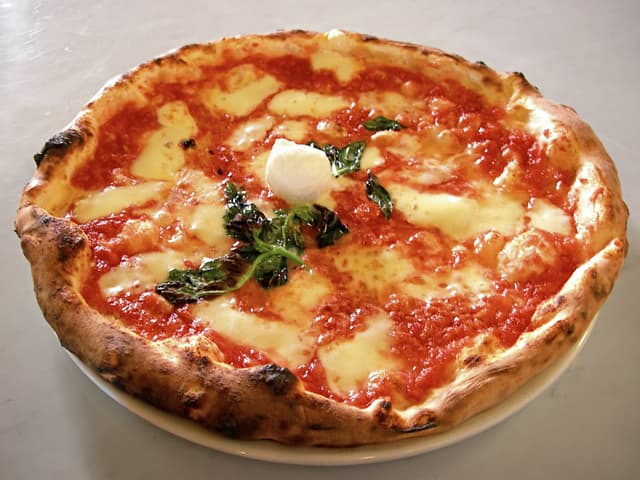Portuguese Cuisine vs. Italian cuisine
Portuguese Cuisine
Portuguese cuisine stands as a prime contender for the title of the best food in the world, thanks to its rich culinary traditions, emphasis on fresh ingredients, and a harmonious blend of flavours that reflect its historical maritime prowess. Here's a compelling argument that underscores why Portuguese food deserves this accolade: Diversity Influenced by History and Geography Portuguese food is a palimpsest of the various cultures that have interacted with Portugal over centuries. From the Age of Discoveries when Portuguese explorers brought back spices from Africa and Asia, to the integration of New World crops such as tomatoes and potatoes, the cuisine reflects a synthesis of global flavours uniquely blended with traditional Iberian techniques. This historical melding of east and west, north and south, makes Portuguese cuisine not only diverse but uniquely rich and varied. Focus on High-Quality, Fresh Ingredients At the heart of Portuguese cuisine is the use of fresh, hi...
Italian cuisine
The one that we all know and love. Pizza, pasta, risotto, gnocchi, tortellini and many, many more. Also ice cream aka gelato. And limoncello. And wine. Italians love food and it shows.
Reviews
Reviews
| Item | Votes | Upvote |
|---|---|---|
| No pros yet, would you like to add one? | ||
| Item | Votes | Upvote |
|---|---|---|
| No cons yet, would you like to add one? | ||
| Item | Votes | Upvote |
|---|---|---|
| No pros yet, would you like to add one? | ||
| Item | Votes | Upvote |
|---|---|---|
| No cons yet, would you like to add one? | ||
Frequently Asked Questions
Portuguese cuisine and Italian cuisine each have their unique strengths. Portuguese cuisine is renowned for its rich culinary traditions influenced by a blend of global flavors and a strong emphasis on fresh, high-quality seafood and local produce. Techniques like using the 'cataplana' and grilling over charcoal highlight the natural flavors of the ingredients. On the other hand, Italian cuisine is widely celebrated for its diverse array of dishes such as pizza, pasta, risotto, and gelato. Italians are known for their passion for food, which is evident in the simplicity and quality of their ingredients, such as the use of fresh tomatoes, olive oil, and herbs. The choice between the two depends on personal preference for either the smoky richness and seafood focus of Portuguese cuisine or the comforting, well-loved staples of Italian cuisine.
Portuguese cuisine has a greater focus on fresh seafood compared to Italian cuisine. The extensive coastline of Portugal provides an abundance of seafood, including sardines, bacalhau (dried and salted cod), octopus, and various shellfish, which are staples in the Portuguese diet. While Italian cuisine does feature seafood dishes, especially in coastal regions, it is more broadly known for its pasta, pizza, and other diverse dishes that do not necessarily center around seafood.
Portuguese cuisine is more influenced by historical and geographical diversity. It reflects a synthesis of global flavors due to Portugal's historical maritime prowess during the Age of Discoveries, which brought spices from Africa and Asia and integrated New World crops such as tomatoes and potatoes into the cuisine. This blending of east and west, north and south, makes Portuguese cuisine uniquely rich and varied. Italian cuisine, while also diverse and influenced by its regional variations, is primarily known for its Mediterranean flavors and ingredients.
Portuguese cuisine is renowned for its rich culinary traditions, emphasis on fresh ingredients, and a harmonious blend of flavors influenced by its historical maritime prowess. It features a diverse array of dishes that reflect a synthesis of global flavors uniquely blended with traditional Iberian techniques.
Staple ingredients in Portuguese cuisine include fresh seafood such as sardines, bacalhau (dried and salted cod), octopus, and various shellfish. Additionally, the cuisine emphasizes the use of fresh, local produce, piri-piri (small fiery chillies), garlic, and olive oil.
Portuguese cuisine reflects its historical influences through the integration of spices from Africa and Asia brought back during the Age of Discoveries, as well as the incorporation of New World crops such as tomatoes and potatoes. This historical melding of different cultures contributes to its diverse and rich culinary tradition.
Traditional cooking techniques in Portuguese cuisine include the use of the 'cataplana' (a clam-shaped cooker) that seals in flavors and juices, and grilling over charcoal which infuses dishes with a smoky richness. The cuisine also relies on simple seasoning to enhance the natural flavors of the ingredients.
As of now, there are no user-generated pros and cons for Portuguese cuisine. However, the cuisine is generally praised for its use of fresh, high-quality ingredients and diverse flavors. Possible cons might include the potential for some dishes to be too rich or seasoned for certain palates.
Italian cuisine is known for its regional diversity and abundance of taste, focusing on fresh, high-quality ingredients. Popular dishes include pizza, pasta, risotto, gnocchi, and tortellini. Desserts like gelato and beverages such as limoncello and a variety of wines are also integral to Italian culinary traditions.
Italian cuisine is renowned for its flavorful and simple dishes that emphasize fresh ingredients. It includes a wide variety of foods such as pizza, pasta, and risotto, as well as desserts like gelato and drinks like limoncello and wine.
Famous dishes in Italian cuisine include pizza, pasta (such as spaghetti, lasagna, and fettuccine), risotto, gnocchi, and tortellini. Desserts like gelato and beverages such as limoncello and a variety of wines are also widely celebrated.
Common beverages enjoyed with Italian cuisine include a variety of wines, which are often paired with meals. Limoncello, a lemon-flavored liqueur, is also popular, especially as a digestif after meals.
Italian cuisine is unique due to its emphasis on fresh, high-quality ingredients and its regional diversity. Each region in Italy has its own specialties and traditional dishes, making Italian cuisine rich and varied.
Related Content & Alternatives
- 3
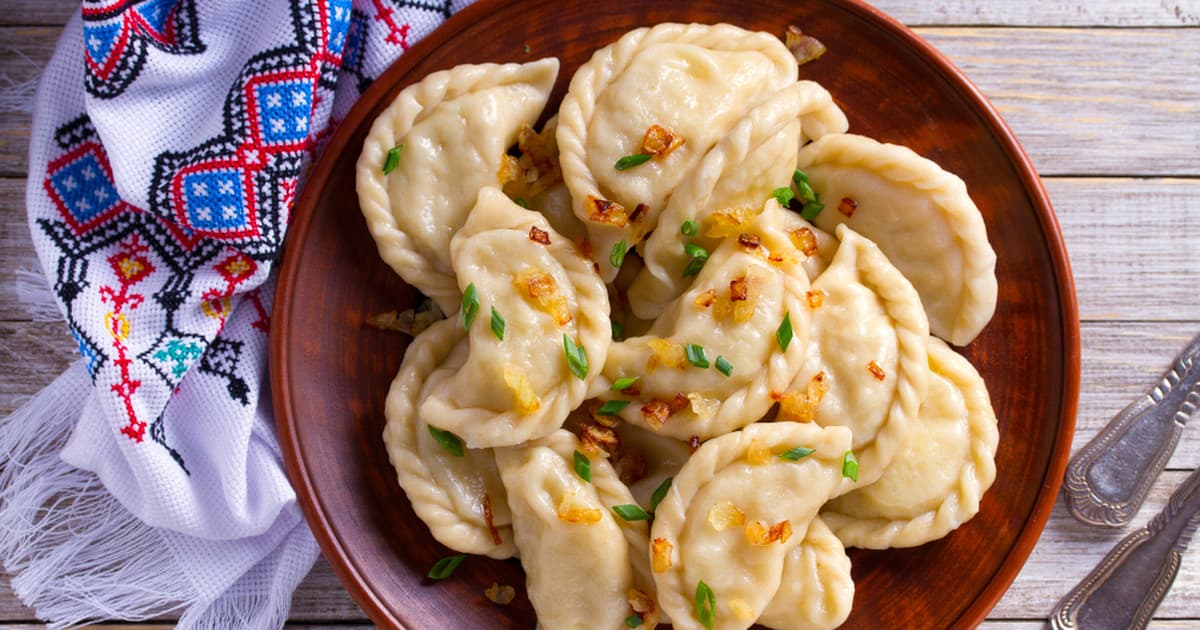 1.Polish Cuisine
1.Polish CuisinePolish cuisine is all about comfort, rich flavors, and tradition. It’s the kind of food that sticks to your ribs, perfect for long winters and big family gatherings. Think hearty soups, meat-heavy dishes, and a lot of potatoes, cabbage, and bread. Pierogi are probably the most famous Polish dish—soft dumplings filled with anything from potato and cheese to meat, mushrooms, or sweet fruits. Then there’s bigos, a slow-cooked hunter’s stew packed with sauerkraut, fresh cabbage, sausage, and sometimes even wild game. It’s the kind of dish that gets better the longer it sits. If you like schnitzel, you’ll love kotlet schabowy, a breaded pork cutlet usually served with mashed potatoes and pickled cucumber salad. And for something truly Polish, there’s żurek—a sour rye soup with sausage and egg, often served in a bread bowl. Poland is also big on fermented foods like ogórki kiszone (pickled cucumbers) and kapusta kiszona (sauerkraut), which add a tangy kick to meals. And if you have a sweet tooth, Polish desserts won’t disappoint—pączki (fluffy doughnuts filled with rose jam), sernik (a dense cheesecake), and makowiec (a poppy seed roll) are just the start. To wash it all down? Vodka, of course. Poland has been perfecting it for centuries. But if you prefer something milder, there’s always hot tea with lemon or kompot, a homemade fruit drink. Polish food is all about big portions, simple ingredients, and bold flavors. It’s the kind of cooking that makes you feel at home, no matter where you’re from.
- 3
 2.Thai Cuisine
2.Thai CuisineThai cuisine is all about bold flavors, fresh ingredients, and a balance of sweet, sour, salty, bitter, and spicy tastes. Every meal feels like a mix of contrasts that somehow just works. You’ve got fragrant herbs like lemongrass, Thai basil, and kaffir lime leaves, paired with staples like fish sauce, chili, and coconut milk. Rice is at the heart of it all—jasmine rice is common in central and southern Thailand, while sticky rice rules up north and in the northeast. Meals are usually shared. There’ll be a spread of dishes—maybe a curry, a stir-fry, a soup, and a salad—all eaten with rice in the middle. The idea is to balance flavors across the meal rather than in just one dish. You might get the rich creaminess of massaman curry alongside the sharp, spicy crunch of som tam (green papaya salad) and the comforting warmth of a clear broth like tom yum. Street food is a huge part of everyday life. Walk down any road and you’ll find vendors grilling skewers of marinated meat, tossing noodles in sizzling woks, or dishing up hot bowls of noodle soup. Grab a plate of pad Thai, a bag of fried chicken with sticky rice, or a steaming bowl of boat noodles from a floating market. And if you’ve got a sweet tooth, there’s mango sticky rice, coconut-based desserts, and crispy pancakes filled with sweet custard. Different regions have their own twist. In the north, dishes like khao soi—a curry noodle soup topped with crispy noodles—are popular, while the northeast (Isan) is known for grilled meats, sticky rice, and punchy salads. Down south, expect fiery curries with plenty of coconut milk and fresh seafood. Even breakfast can be exciting—sometimes just rice and an omelet, other times noodle soups or patongko (Thai donuts) with sweetened condensed milk. No matter where you go in Thailand, the food is vibrant, flavorful, and often made to be enjoyed with others. It’s comforting, lively, and always about that perfect mix of flavors.
- 2
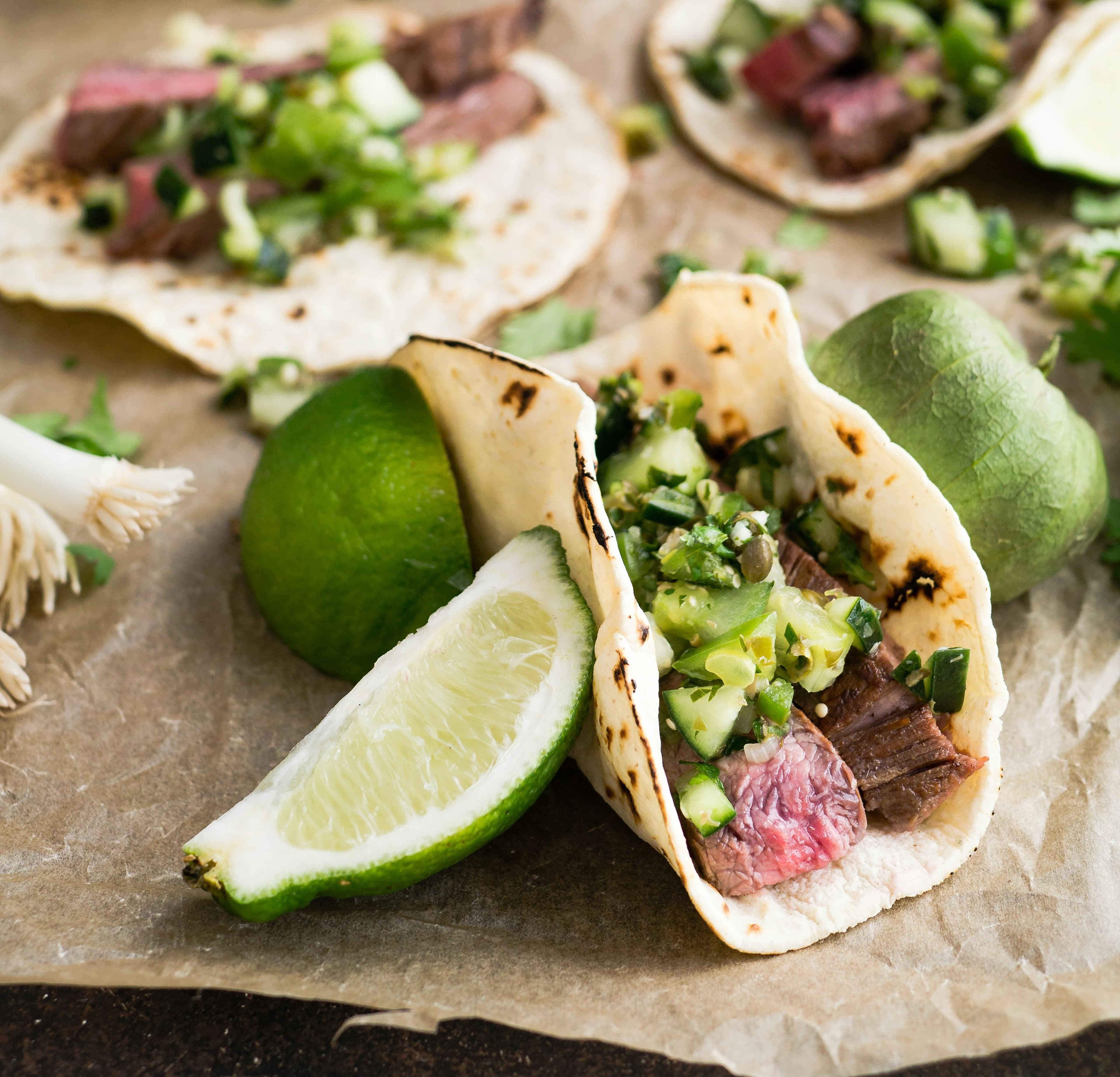 4.Mexican Cuisine
4.Mexican CuisineThe one that we all know and love! Tacos, nachos, burritos, guacamole, quesadilla, tamales - I could go on and on! Spicy, tasty and full of fresh ingredients.
- 1
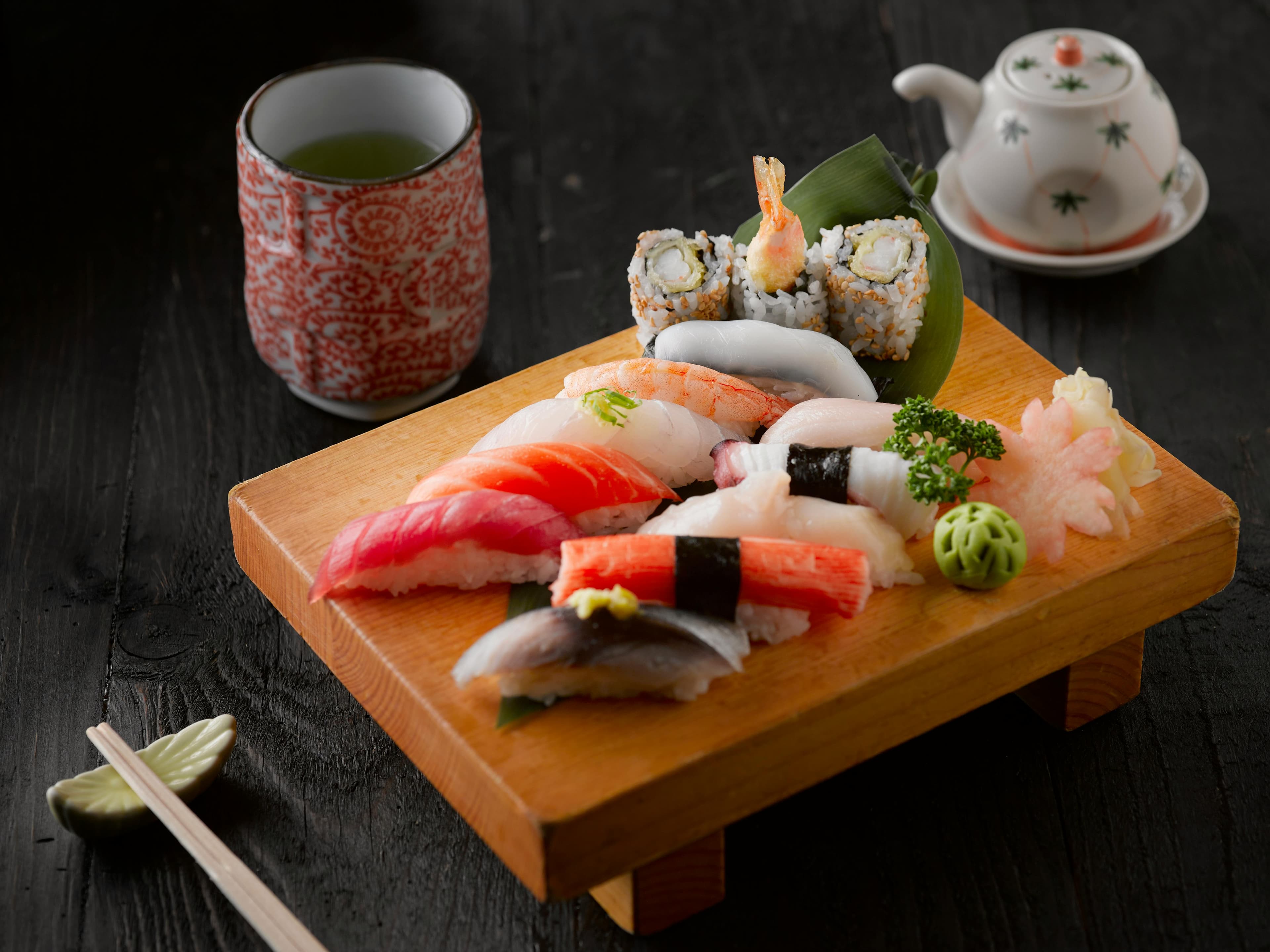 5.Japanese Cuisine
5.Japanese CuisineThe Japanese cuisine has given us so much it's hard to even find a place to start. You've got your sushi, ramen, udon, edamame, mochi balls, tempura, soba, bento boxes, sukiyaki, gyoza, onigiri, yakisoba, miso soup... They could be number one on this list based on the sushi alone!
- 2
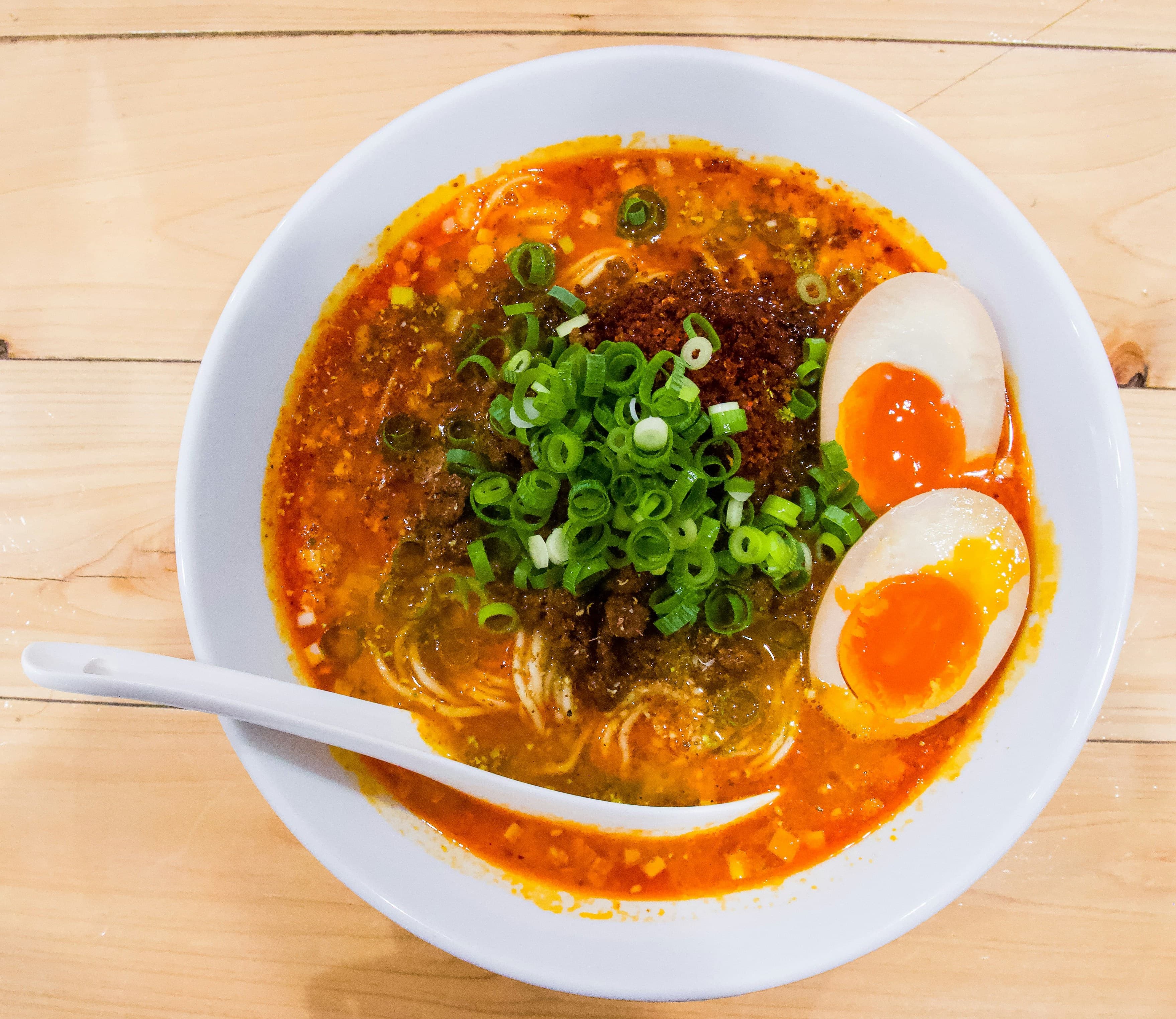 1.Tantanmen
1.TantanmenAlso know as Tan Tan Ramen. This is the best ramen, period. Rich, creamy, and spicy, topped with eggs and ground pork. It has a distinctive flavor thanks to the use of chili oil and doubanjiang, a type of spicy bean paste. It originated from similar Sichuanese dish called Dandan noodles.
- 2
 2.Piri Piri Roast Chicken
2.Piri Piri Roast ChickenPiri Piri roast chicken is arguably the best dish for those who cherish bold flavours and succulent meat. The dish’s main draw is the Piri Piri sauce—a fiery blend of chilli peppers, garlic, lemon, and herbs that hails from Portuguese cuisine but is infused with African influence, giving it a tantalizing kick. The chicken is marinated in this spicy sauce, allowing the robust flavours to penetrate deeply and ensuring every bite is infused with spice and zest. Roasted to perfection, the skin becomes crispy and golden, while the meat inside remains tender and juicy. This delightful contrast in textures, combined with the heat from the Piri Piri sauce, offers a sensory experience that is both satisfying and exhilarating. The dish’s simplicity, requiring few ingredients but delivering complex flavour profiles, makes Piri Piri roast chicken not just a meal but an experience—one that celebrates the harmony of heat, spice, and expert culinary technique.
- 1
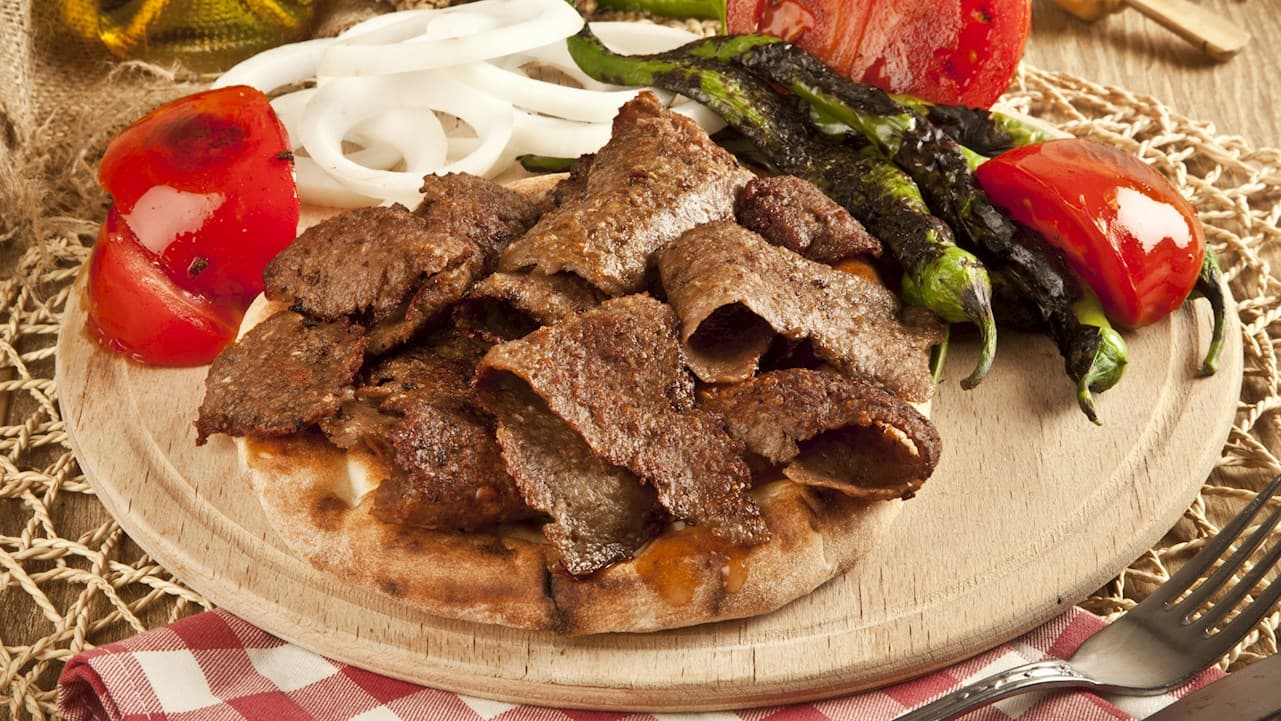 3.Doner Kebab
3.Doner KebabDoner Kebab, with its perfectly spiced, succulent slices of meat crisped to perfection, nestled in fresh, fluffy bread, and complemented by an array of vibrant, tangy sauces and fresh vegetables, offers an unrivaled symphony of flavors. This culinary masterpiece marries the art of seasoning and grilling, making each bite an unforgettable taste sensation that dances across the palate. Its universal appeal lies not just in its deliciousness, but in its ability to bring together the best of global flavors, making it a top contender for the best-tasting dish in the world.
- 0
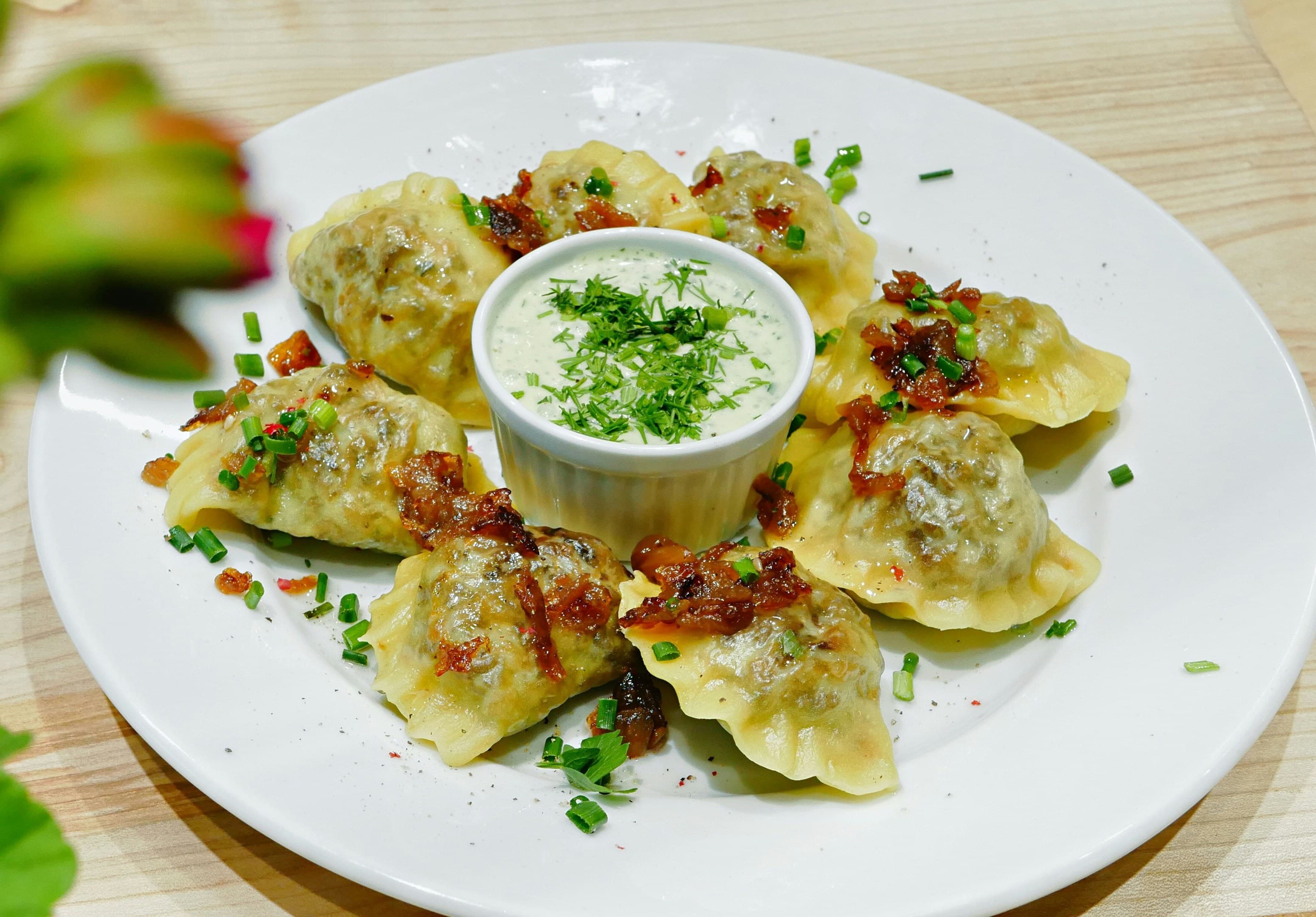 4.Pierogi Ruskie
4.Pierogi RuskieThe quintessential Polish dish. Made with white cheese, potatoes, salt, pepper, and onions. Topped with sour cream and bacon. Yum!
- 0
 5.Currywurst
5.CurrywurstCurrywurst is a German street food made of a pork sausage, usually a bratwurst, that's grilled or fried, then sliced into bite-sized pieces. It's topped with a curry-flavored ketchup sauce—basically a mix of ketchup, curry powder, and sometimes extra spices like paprika. It’s often served with fries or a bread roll to mop up the sauce. It was first made in Berlin in 1949 by a woman named Herta Heuwer, who got ketchup and curry powder from British soldiers after World War II. She mixed them up, poured it over some sausage, and started selling it at a street stand. It caught on fast, especially with construction workers rebuilding the city. Today, you can find currywurst all over Germany, but Berlin is still its unofficial home. There used to be a whole museum dedicated to it, which shows how much people love the stuff. You usually get it on a paper plate with a tiny wooden fork, and everyone has their preference—some like more curry powder on top, others a spicier sauce. Volkswagen even makes its own currywurst for employees, which is a bit wild when you think about a car company also being a sausage producer. All in all, it’s simple, messy, and filling—the kind of food you grab when you’re hungry and don’t want to overthink it.
- 2
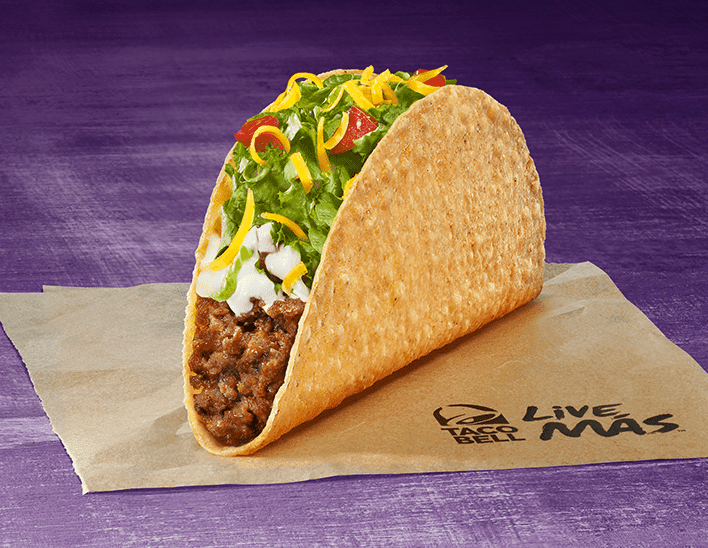 2.Taco Bell
2.Taco BellTaco Bell is a fast-food chain from the U.S. that serves Mexican-inspired food. You’ll find things like tacos, burritos, nachos, and quesadillas on the menu, plus some of their own creations like the Crunchwrap Supreme and Doritos Locos Tacos. They’re known for mixing up flavors with American-style ingredients, so don’t expect something like you’d find at an authentic Mexican place—it’s more of a quick, grab-and-go option with lots of cheese, sauces, and seasoned meats. The first Taco Bell opened in 1962 in California, started by Glen Bell. He got the idea after seeing how popular a local Mexican restaurant was. Since then, it’s grown huge, with thousands of locations not just in the U.S. but in many countries around the world. Most of the stores are run by independent owners, not directly by the company. The menu changes a lot. They’ll bring in limited-time items and have tried everything from breakfast offerings to vegan options. They also have a value menu with cheap eats if you’re on a budget. Some of their restaurants, called "Cantinas," serve alcohol and have a more modern vibe, especially in city areas. Taco Bell has done plenty of quirky promotions over the years, like offering free tacos if a base is stolen during the World Series or letting people get married at their flagship Las Vegas location. It’s the kind of place people either go to when they want something quick and filling or when they’re craving something salty and cheesy late at night.
- 1
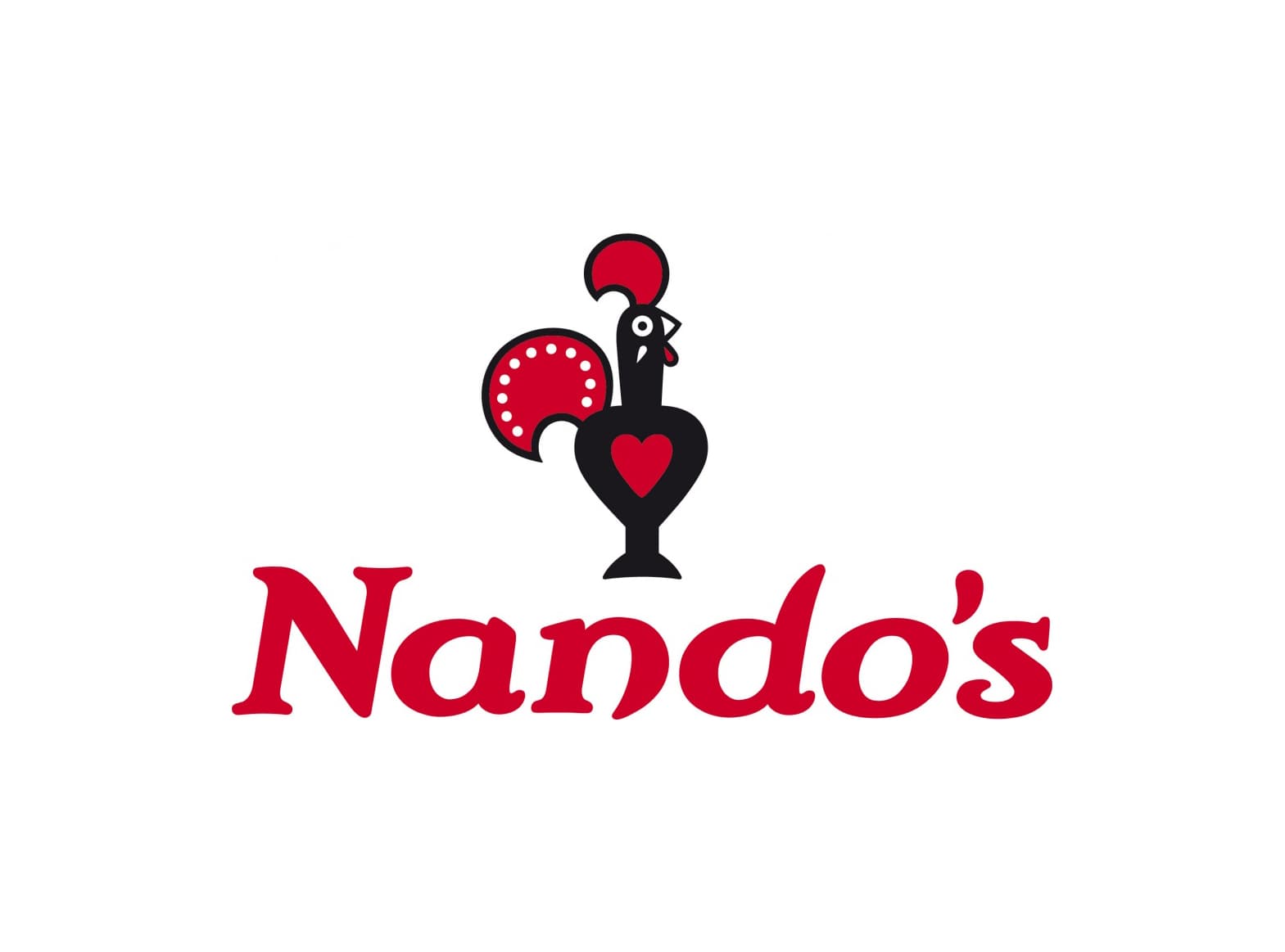 3.Nando's
3.Nando'sNando’s stands out as the best fast-food restaurant by successfully combining casual dining with high-quality, flavourful food that boasts a unique cultural heritage. Renowned for its flame-grilled piri-piri chicken, the restaurant’s roots in Southern African-Portuguese cuisine provide a distinctive spicy twist that sets it apart from typical fast-food offerings. Nando’s emphasises freshness and quality, marinating their chicken for 24 hours in their signature "peri-peri" sauce which customers can select based on their preferred spice level. This personalised spice choice, coupled with a vibrant and welcoming ambiance, makes Nando’s not just a place to eat, but a culinary experience. The brand's commitment to sustainability and ethical sourcing, including their use of higher welfare chickens and eco-friendly practices, resonates well with a globally-conscious clientele, further establishing its reputation as not only a food chain but a responsible corporate citizen.
- 0
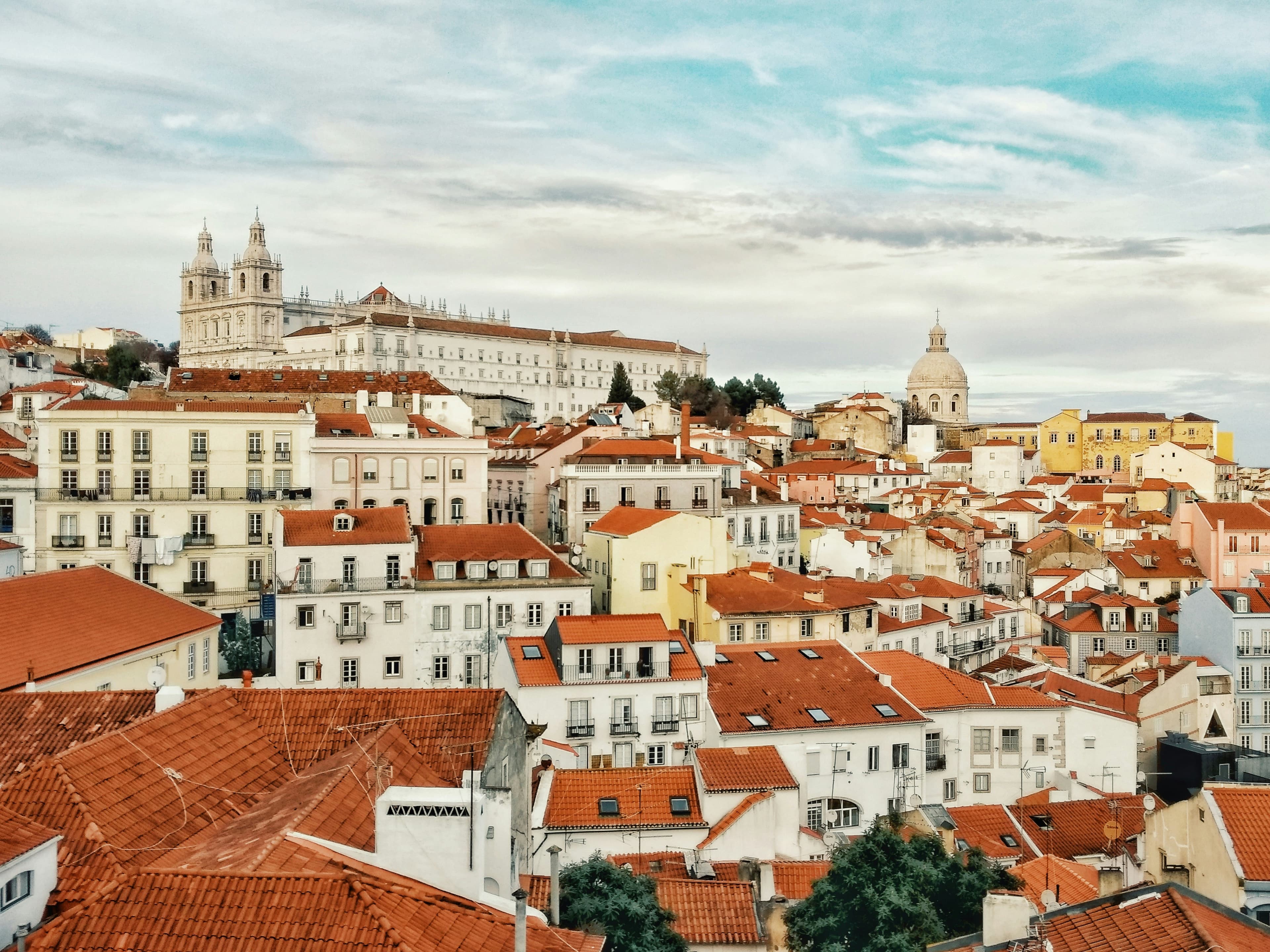 3.Lisbon, Portugal
3.Lisbon, PortugalLisbon sits on the western edge of Europe, right where the Tagus River meets the Atlantic Ocean. The city is built on a series of hills, which gives it sweeping views of red-tiled rooftops, cobbled streets, and the water beyond. Walking around, you’ll notice how the narrow lanes twist and turn, especially in neighborhoods like Alfama, where clotheslines stretch between buildings and the smell of grilled sardines lingers in the air. It’s a place where old and new blend together. You’ll find trams from the early 20th century rattling through streets, while modern glass buildings rise up in other parts of town. Down by the river, the Belém Tower and Jerónimos Monastery, both from the Age of Discovery, remind you that Portuguese explorers once set out from this very spot. Lisbon gets plenty of sunshine—nearly 3,000 hours a year. Summers are warm and dry, while winters stay cool and damp, but not too cold. Along the riverbanks, locals sit at cafés, sipping coffee or wine, while ferry boats glide across the water. Economically, Lisbon is Portugal’s hub, with banking, tech companies, and tourism bringing in most of the money. There’s a steady flow of visitors, drawn by the mild weather, historic sites, and laid-back vibe. Despite the city’s modernization, many residents struggle with rising living costs, especially with the influx of tourists and expats driving up housing prices. Culturally, the city is rich. Fado music echoes from small bars, and street art colors many walls. Markets buzz with fresh produce and seafood. People here celebrate Saint Anthony’s festival in June with street parties, music, and grilled sardines everywhere you look. Getting around is easy enough. There’s an extensive metro system, old-school trams, buses, and even ferries to cross the river. And if you fancy a bit of green space, parks like Eduardo VII Park or Monsanto Forest Park offer a break from the city streets. In short, Lisbon is a city that wears its history proudly but doesn’t mind embracing the modern world. It’s got a relaxed pace, friendly locals, and a charm that’s hard to shake.
- 3
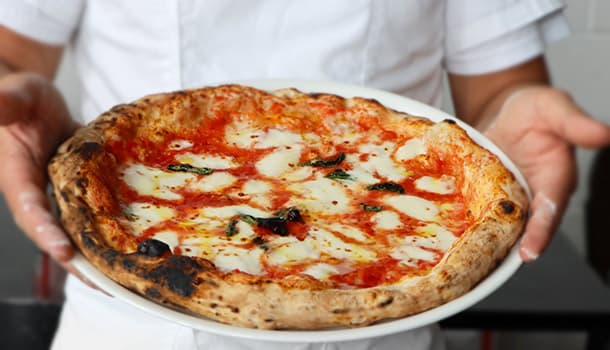 1.Margherita Pizza
1.Margherita PizzaThe OG pizza. The minimalist pizza. Cheese, tomato sauce, and basil leaves. What else does a pizza need?
- 2
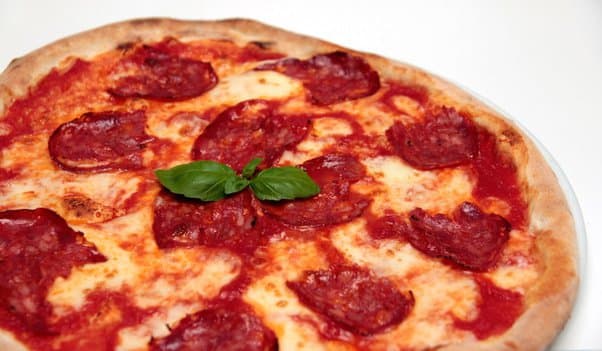 2.Pepperoni Pizza
2.Pepperoni PizzaDelicious pizza with a single topping. Simple and to the point.
- 1
 3.Hawaiian Pizza
3.Hawaiian PizzaDelectable Pizza topped with pineapple and Canadian ham! The perfect mix of sweet and salty <3
- 0
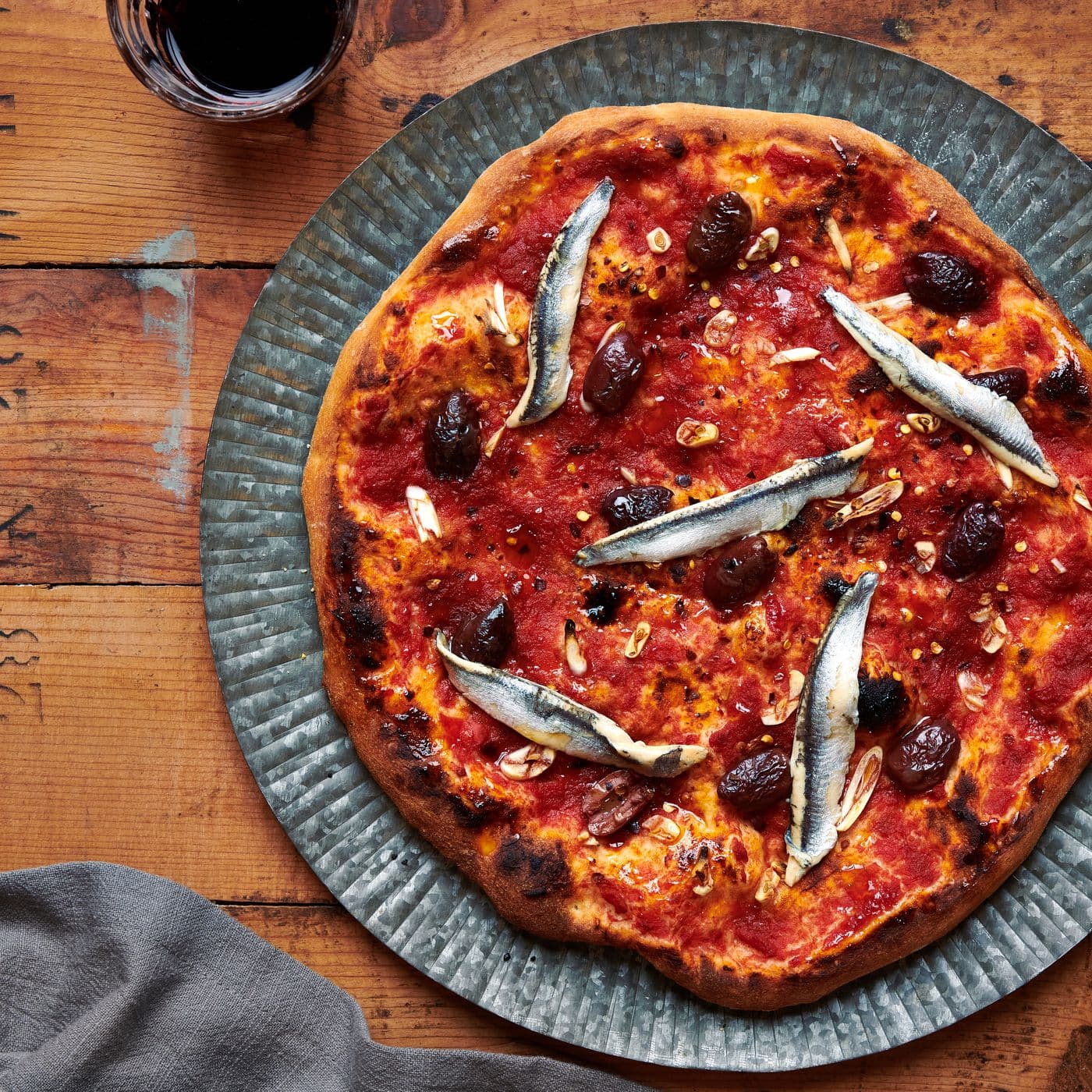 4.Anchovy Pizza (Napoletana)
4.Anchovy Pizza (Napoletana)Topped with capers and anchovies. Rich in umami. Salty and delicious.
- 0
 2.Ogniem i Piecem
2.Ogniem i PiecemAffordable, casual pizza place in the center of Gdynia. They serve pizza by the slice, breakfasts, pastas and cakes. It's dog-friendly, has good music, friendly atmosphere and a vaguely "street style" hip vibe.
- 0
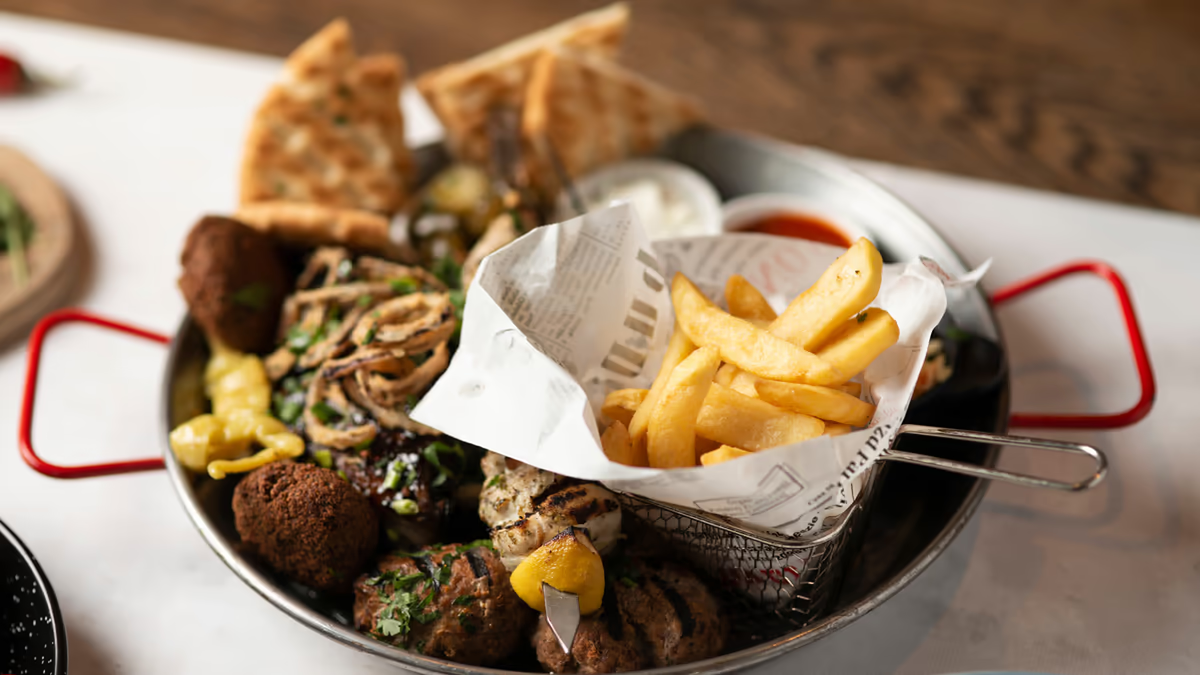 3.Taverna Zante
3.Taverna ZanteCasual Greek restaurant and cocktail bar. Tzatziki, gyros, souvlaki, that sort of thing. Outdoor seating in spring and summer. I go there a lot and the food is delicious.
- 1
 1.Have a $1 pizza slice
1.Have a $1 pizza sliceEver since the 2008 Great Recession, $1 pizza slices have been popping up all over Manhattan. Now, there are over 80 spots in New York where you can grab a quick, cheap, and surprisingly good slice. People love them because they’re convenient, filling, and easy on the wallet. Whether you're in a rush, short on cash, or just craving some no-fuss pizza, these dollar slices are a go-to for many New Yorkers and visitors alike.
